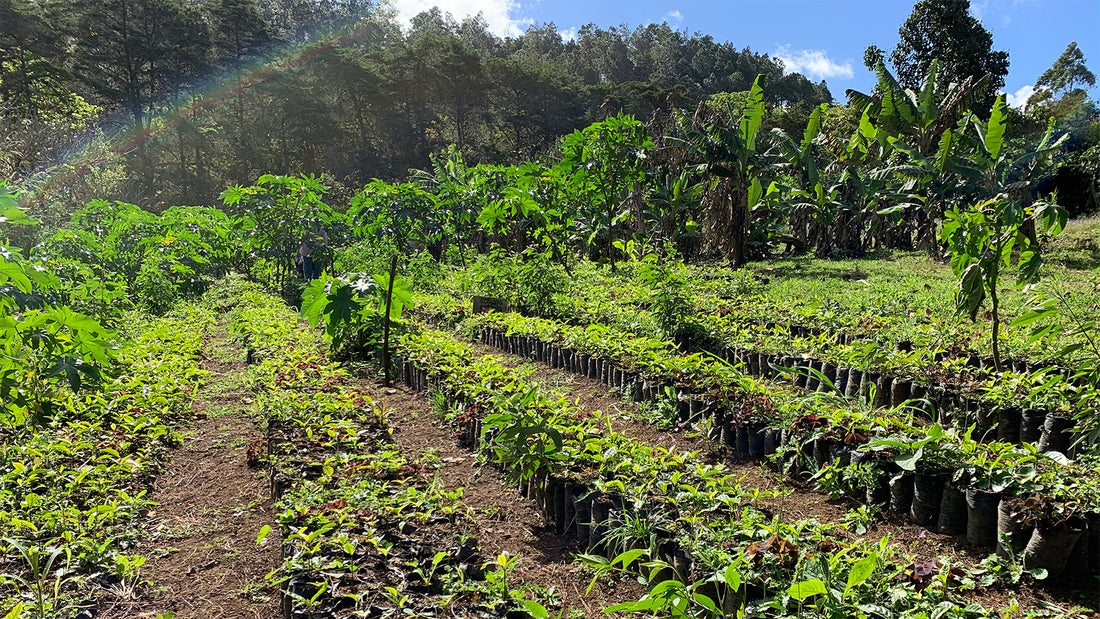Have you ever paused to think about how USDA Certified Organic coffee is different than conventional coffee? We sure have, in fact, most of what we do revolves around these differences.

Coffee is one of the highest selling products in the world, meaning the demand is high! Therefore, many conventional coffee farms have developed farming methods to maximize the amount of coffee they produce without considering its effect on human and environmental health.
Conventional coffee often uses a lot of chemicals (synthetic fertilizers, pesticides, herbicides, fungicides and insecticides) to treat their coffee crops. These chemicals are harmful for the people who are spraying and harvesting the crops as well as the environment and communities surrounding them. Organic coffee, on the other hand, is free of synthetic chemicals throughout the growing and production processes, resulting in cleaner beans, soil and water.

While coffee plants naturally thrive in the shade, it is more challenging to harvest and tend to plants growing in thick forests rather than open fields. In response, many conventionally grown coffee plants are hybrids, developed to flourish in the open sun. This leads to deforestation, tearing down delicate ecosystems and increasing runoff from the rain.
Organic coffee is grown how nature intended, taking advantage of the luscious, shaded forests, natural pest-deterrent animals (birds and lizards), and natural fertilizers (bird droppings, leaf litter, and leaf decay) found in these ecosystems. Organic coffee farms are more resilient and abounding in the nutritious, fertile soil needed to grow the beans we love.

When these are destroyed, conventional coffee suppliers have to increase their use of pesticides and fertilizers in response. Not only does the lack of tree coverage affect the ecosystems, but it creates issues for the surrounding communities whenever there is rainfall. Overtime, the rain water washes away the good nutrients naturally found in the soil, degrading the soil and leading to erosion. This means, the surrounding communities are bombarded with soil and runoff water that is full of all of the chemicals used to treat the coffee plants, contaminating their local water supplies.
These issues are majorly impacting coffee growing regions around the world, but the organic coffee industry is fighting to combat it! By maintaining indigenous flora and tending to their unique regional ecosystems, organic coffee farmers are sustaining forested farms more equipped to handle changes in the climate, lending to be a safer investment for farmers.

Mother Earth Coffee is dedicated to partnering with farmers who care for the environment and value their natural climate as much as we do. We meet our origin partners on their land and observe all of their farming and production practices to ensure all of the coffee we roast is not only organic, but treated with care. From there, we roast each batch in a way that illuminates the flavor and unique tasting notes naturally found in the beans without adding any additional flavors or additives. Mother Earth Coffee is USDA Certified Organic so you can trust each step of the coffee process has been done with Mother Earth in mind.
For more information, visit our Contact Us page and send us a message or read Equal Exchange's article, Organic vs. Conventional Coffee. We love the way they break down this complex subject and used them as a resource for part of this entry!

